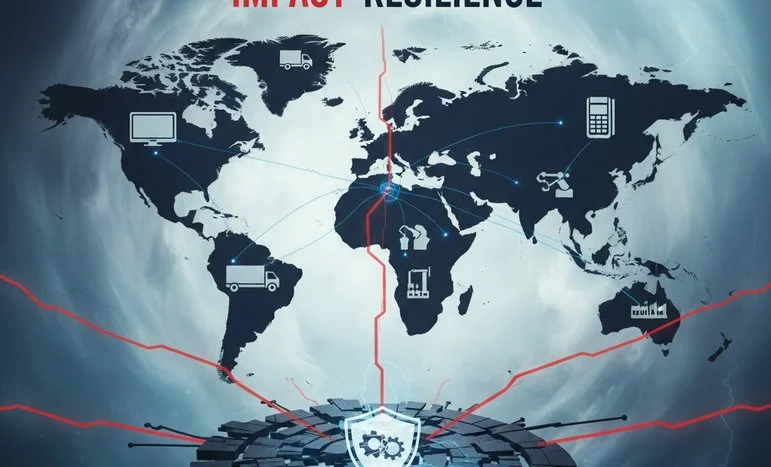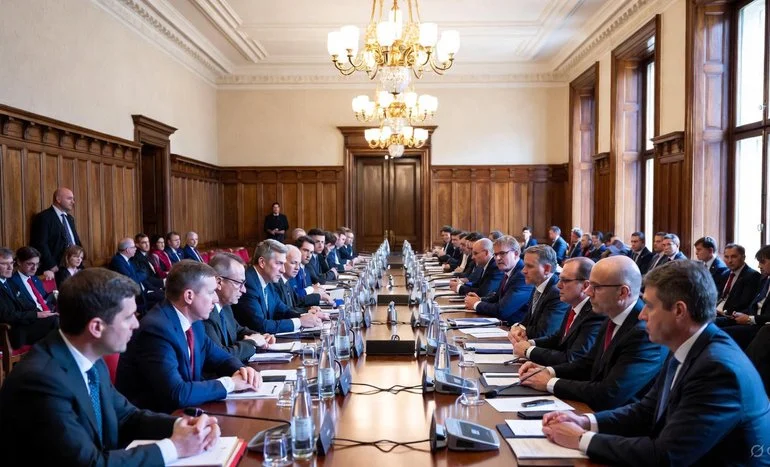
Economic Strain Spurs Pushback on Green Policies Despite AI-Climate Initiatives
Introduction
As economic pressures mount across Europe and North America, public and corporate pushback against green policies is intensifying. Rising energy costs, inflation, and stalled wage growth have fueled skepticism about climate mandates, while searches for circular economy solutions have surged 111%, indicating growing interest in sustainable business models that prioritize resource efficiency.
Meanwhile, corporate boards are exploring AI-driven climate strategies, integrating predictive analytics, carbon tracking, and operational efficiency models. Despite technological advances, value realization from these initiatives remains slow, highlighting the gap between ambition and measurable outcomes.
Rising Pushback Amid Economic Pain
The economic strain experienced by households and businesses has created tension between environmental goals and immediate financial priorities. Citizens and stakeholders increasingly question the cost-effectiveness of policies such as:
- Renewable energy subsidies that drive electricity prices up.
- Carbon taxes affecting manufacturing and logistics.
- Regulatory mandates requiring rapid adoption of sustainable practices.
Social media and industry commentary have amplified frustration, framing climate policy as a source of short-term economic hardship, even as long-term benefits remain acknowledged.
Circular Economy Interest Grows
Interest in the circular economy has jumped 111% in search queries, reflecting growing awareness of resource optimization, waste reduction, and sustainable supply chains. Key focus areas include:
- Material recycling and product lifecycle management.
- Closed-loop manufacturing processes.
- Energy-efficient production strategies.
Businesses are increasingly considering circular models as a response to both resource scarcity and consumer demand for sustainability.
AI Integration in Climate Strategy
Corporate boards are turning to AI to drive climate innovation, leveraging tools for:
- Carbon footprint monitoring and reporting.
- Predictive modeling for energy consumption and emissions reduction.
- Supply chain optimization to reduce waste and resource use.
Despite these initiatives, the gap between AI deployment and tangible financial or environmental value remains significant. Many companies report challenges in data integration, cross-department adoption, and measurable ROI, slowing the pace of transformation.
Challenges to Value Realization
Several factors contribute to the slow translation of AI and circular economy initiatives into real impact:
- Fragmented data sources prevent accurate emissions and efficiency tracking.
- High upfront costs for AI tools and sustainable infrastructure.
- Cultural resistance within organizations to adopting new operational practices.
- Policy uncertainty and fluctuating regulatory incentives, which hinder long-term planning.
As a result, boards face pressure to balance innovation leadership with short-term profitability, leading some to delay aggressive climate investments.
Economic and Policy Implications
The tension between green ambitions and economic reality could shape policy debates in the coming months:
- Governments may face calls to adjust subsidies and incentives to reduce immediate financial burden.
- Businesses may pursue incremental sustainability strategies that are less disruptive to cash flow.
- Investors will likely prioritize firms with demonstrable environmental and economic performance, penalizing those lagging in value realization.
These dynamics highlight the importance of strategic planning and stakeholder communication in executing climate and circular economy initiatives.
The pushback against green policies amid economic strain underscores the delicate balance between sustainability and fiscal responsibility. Rising interest in the circular economy and ongoing AI integration in climate strategies demonstrates that businesses and governments are not abandoning environmental goals, but they are recalibrating expectations to match financial realities.
For meaningful progress, organizations must bridge the gap between innovation adoption and measurable outcomes, ensuring that climate initiatives not only align with policy objectives but also deliver tangible economic and environmental value.
We appreciate that not everyone can afford to pay for Views right now. That’s why we choose to keep our journalism open for everyone. If this is you, please continue to read for free.
But if you can, can we count on your support at this perilous time? Here are three good reasons to make the choice to fund us today.
1. Our quality, investigative journalism is a scrutinising force.
2. We are independent and have no billionaire owner controlling what we do, so your money directly powers our reporting.
3. It doesn’t cost much, and takes less time than it took to read this message.
Choose to support open, independent journalism on a monthly basis. Thank you.














